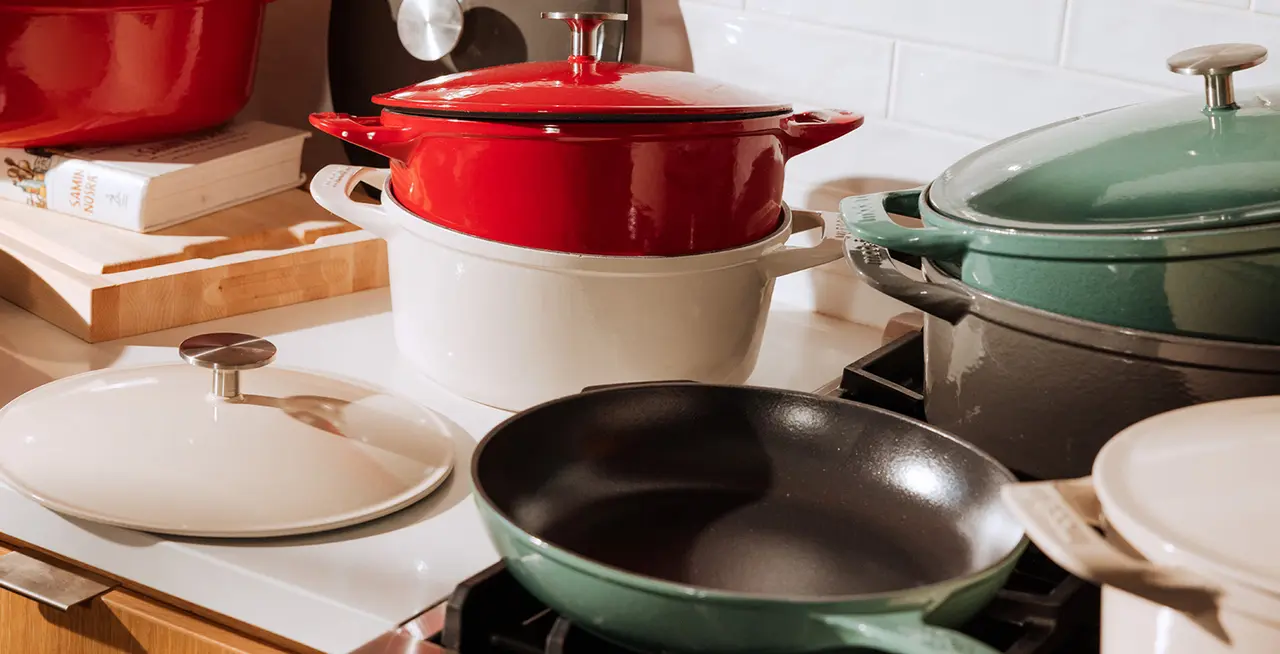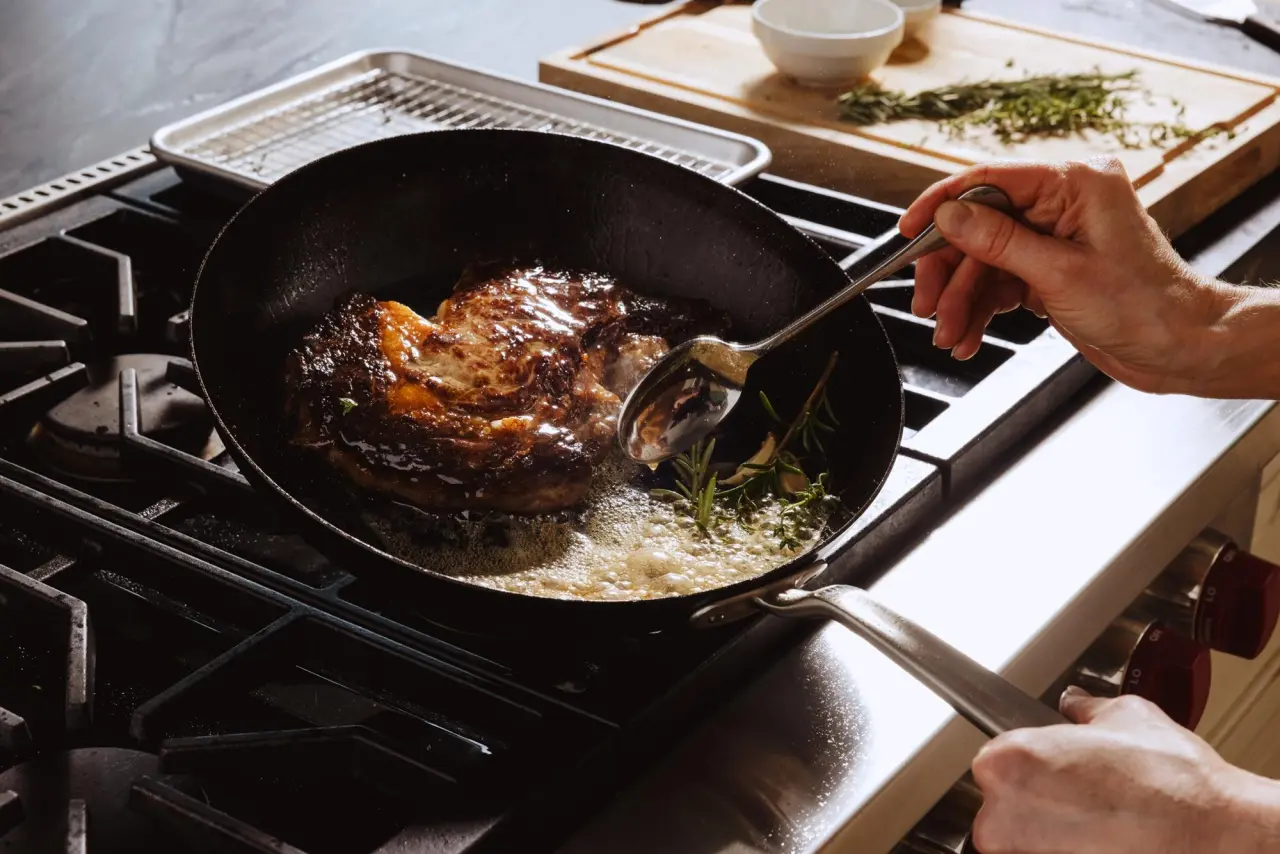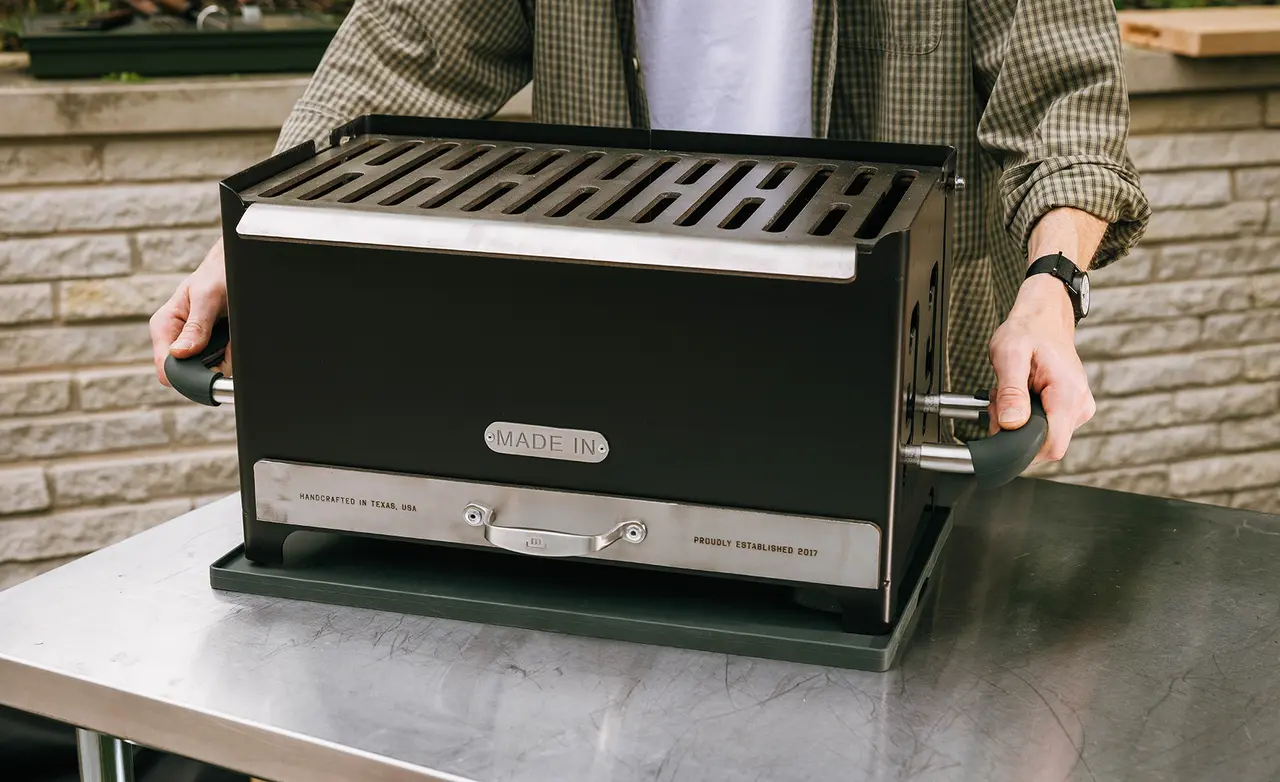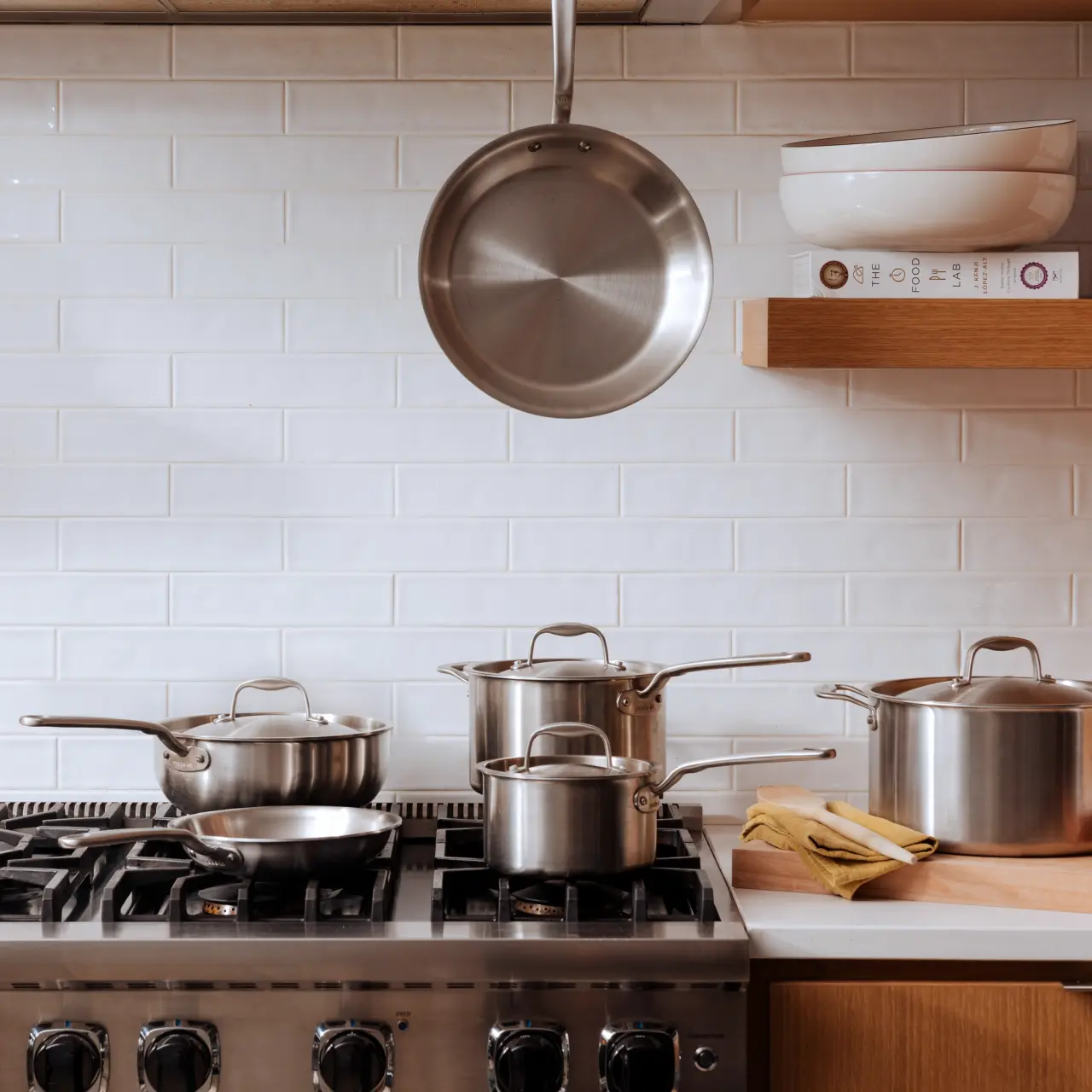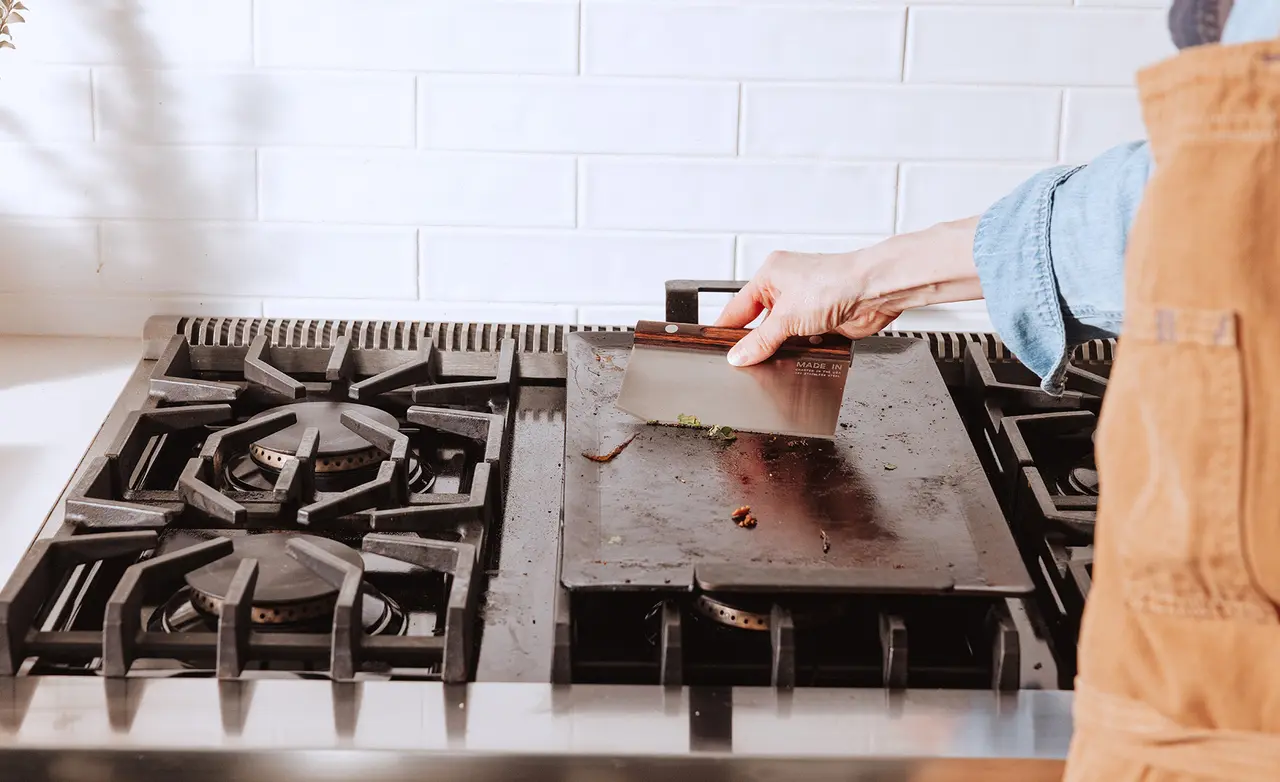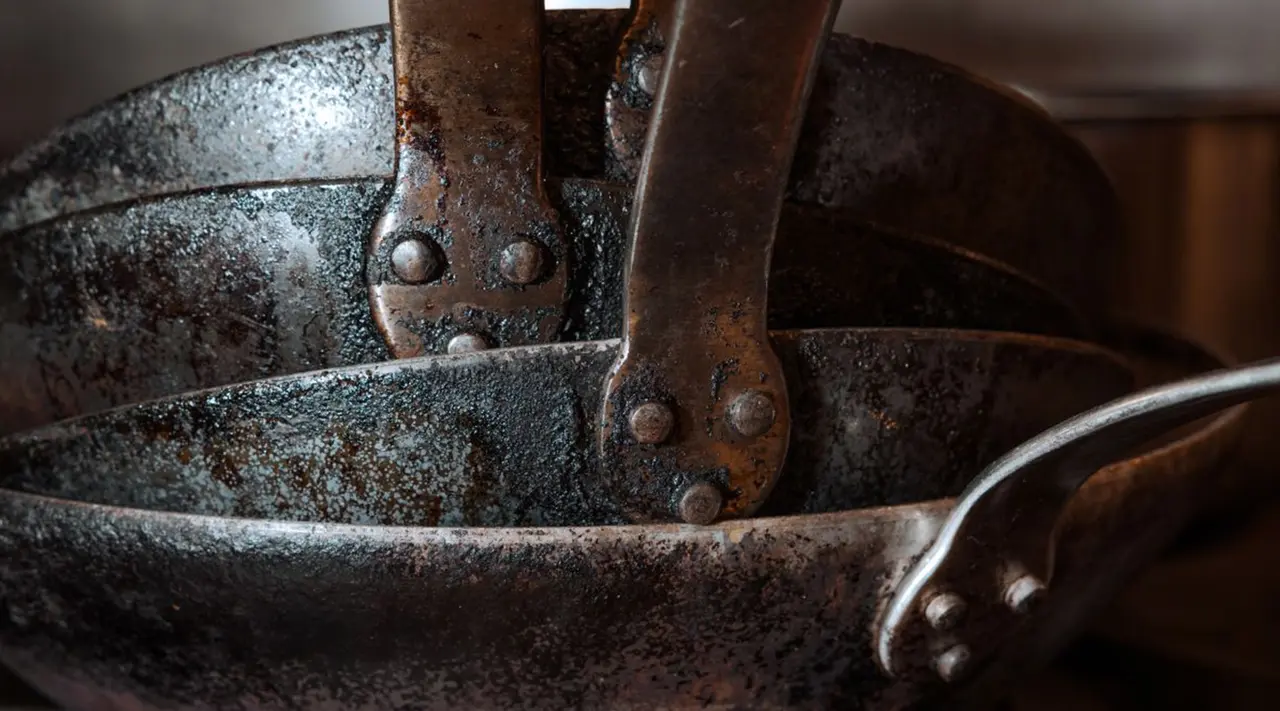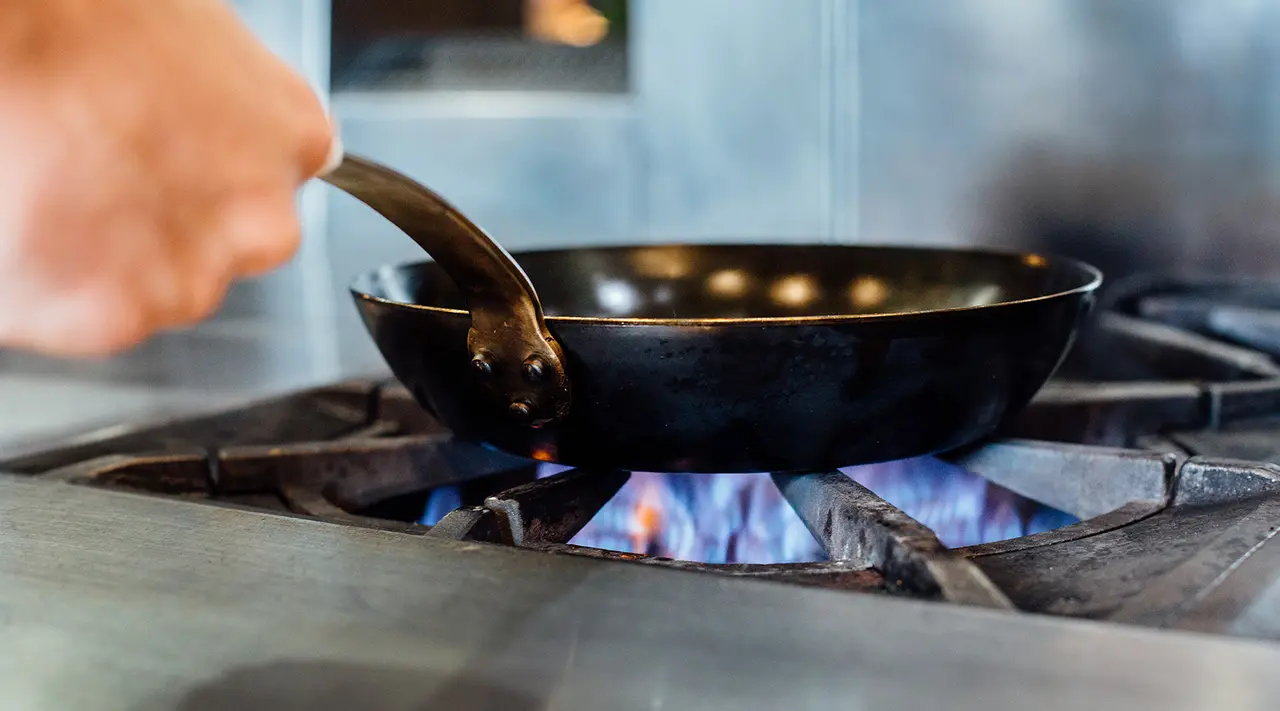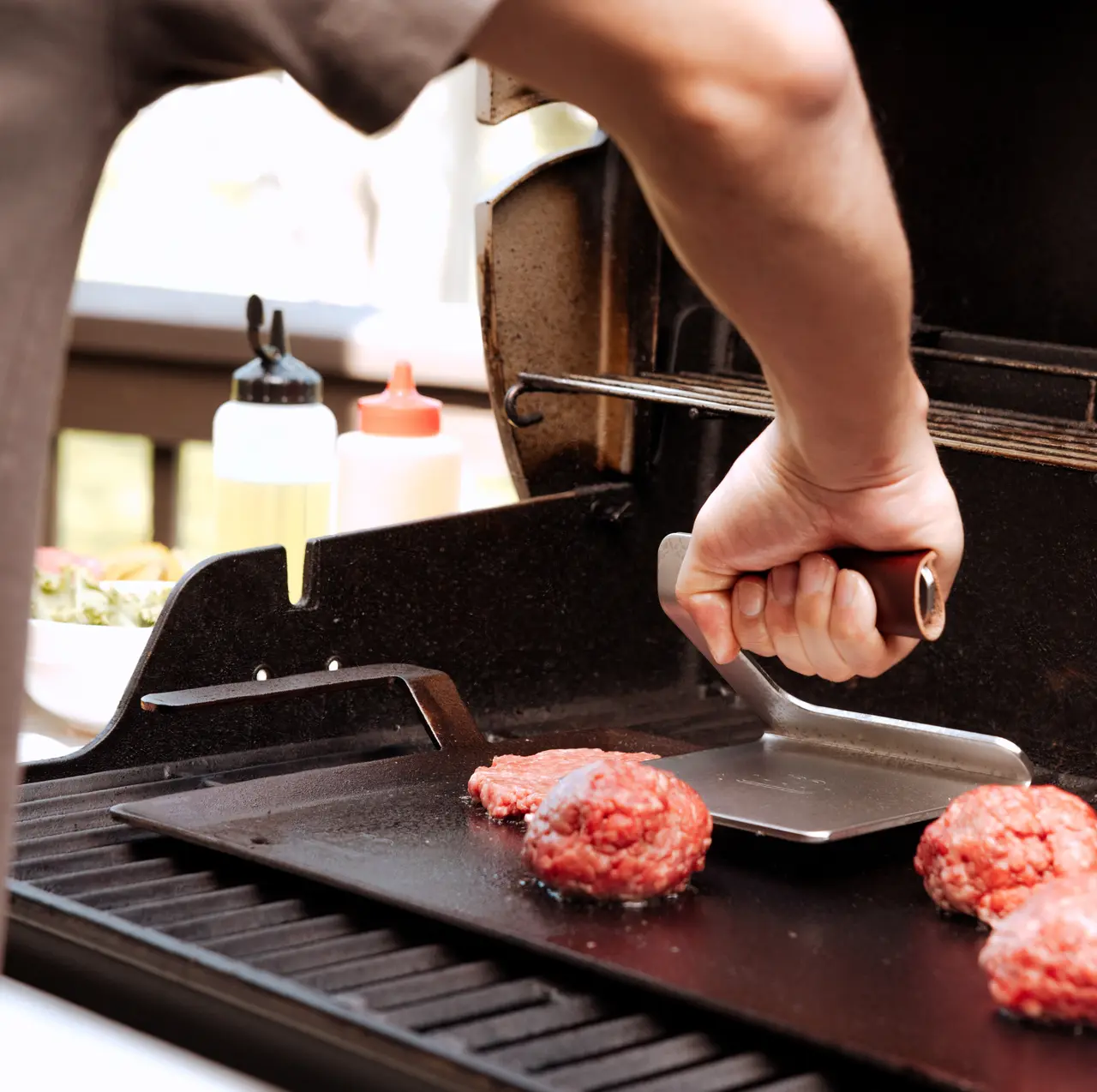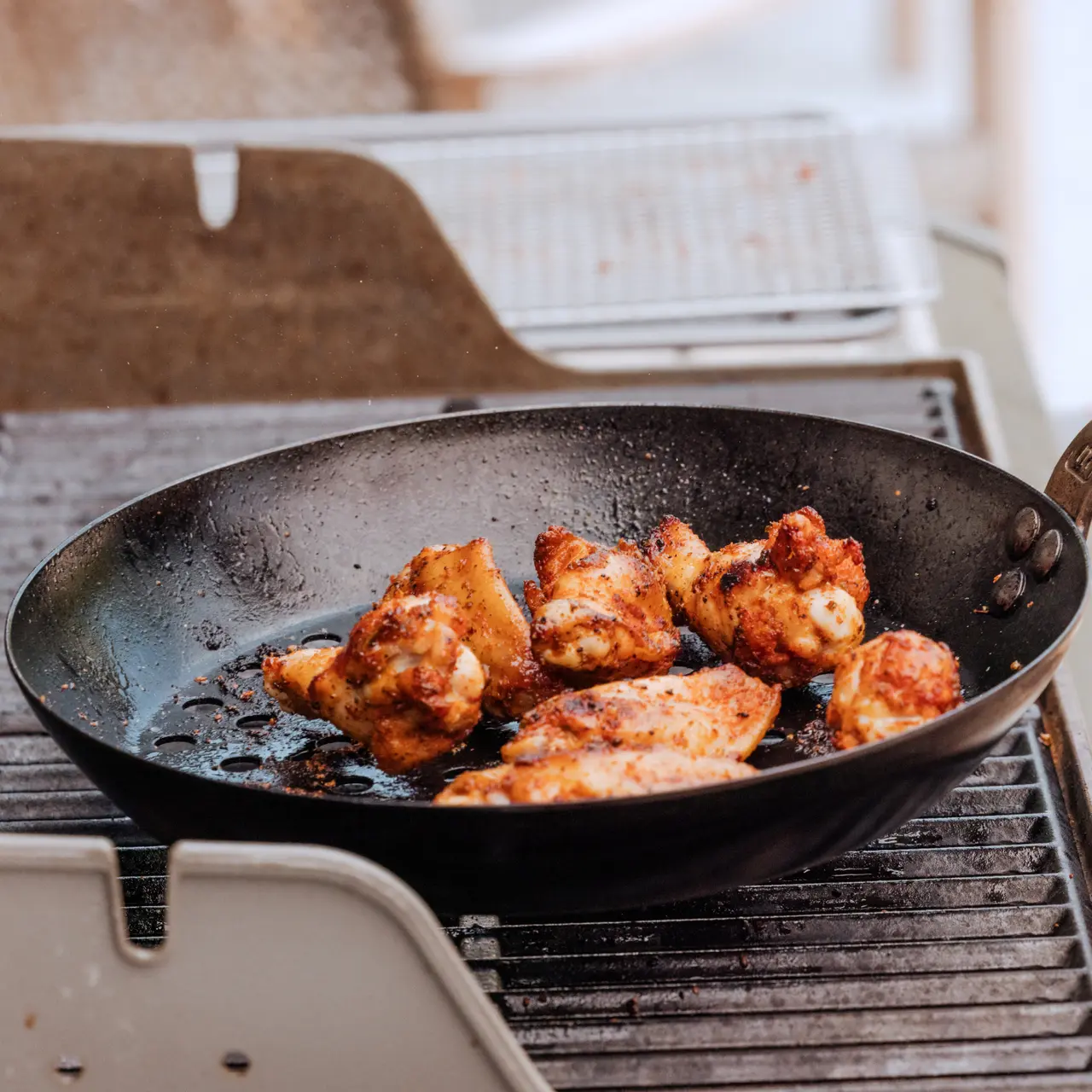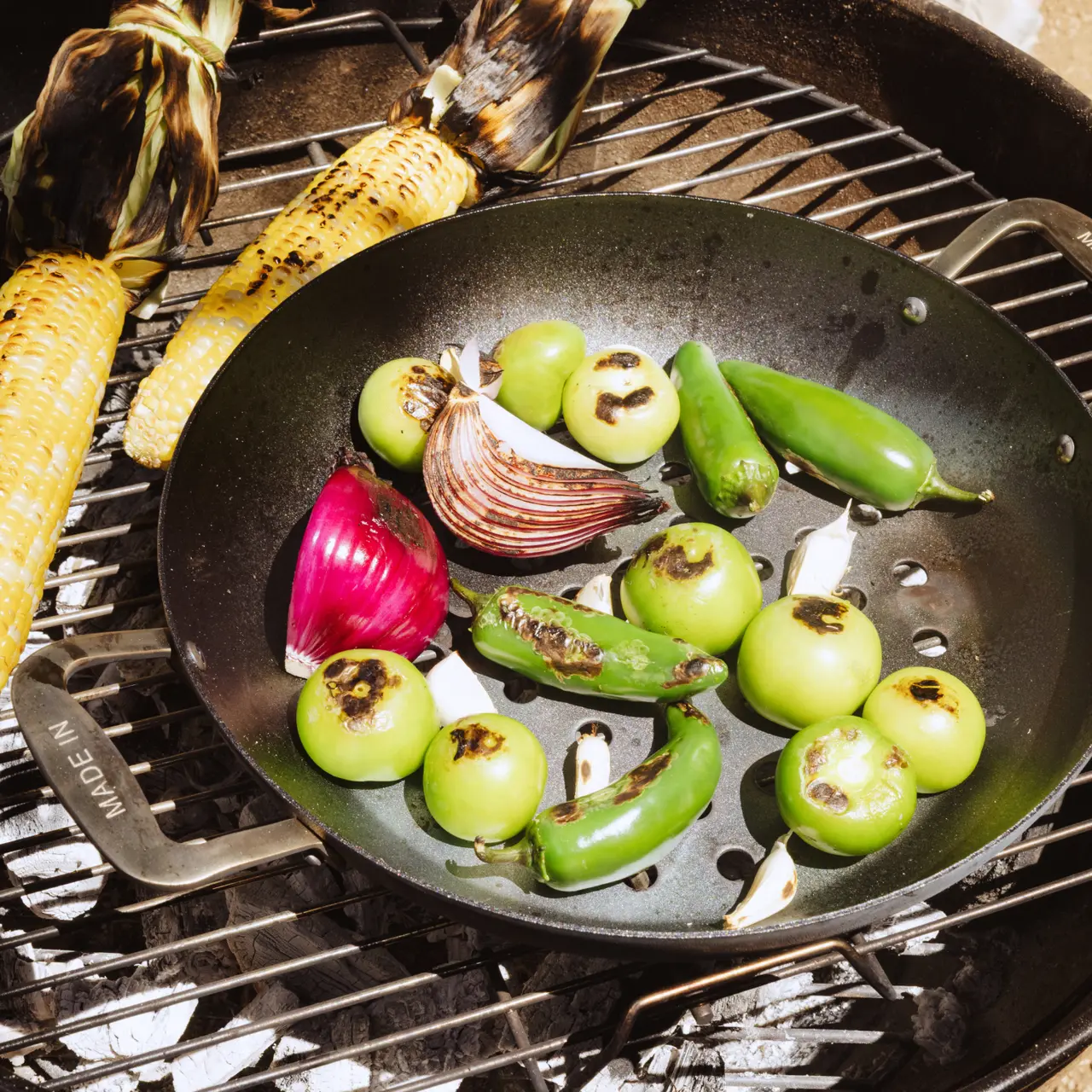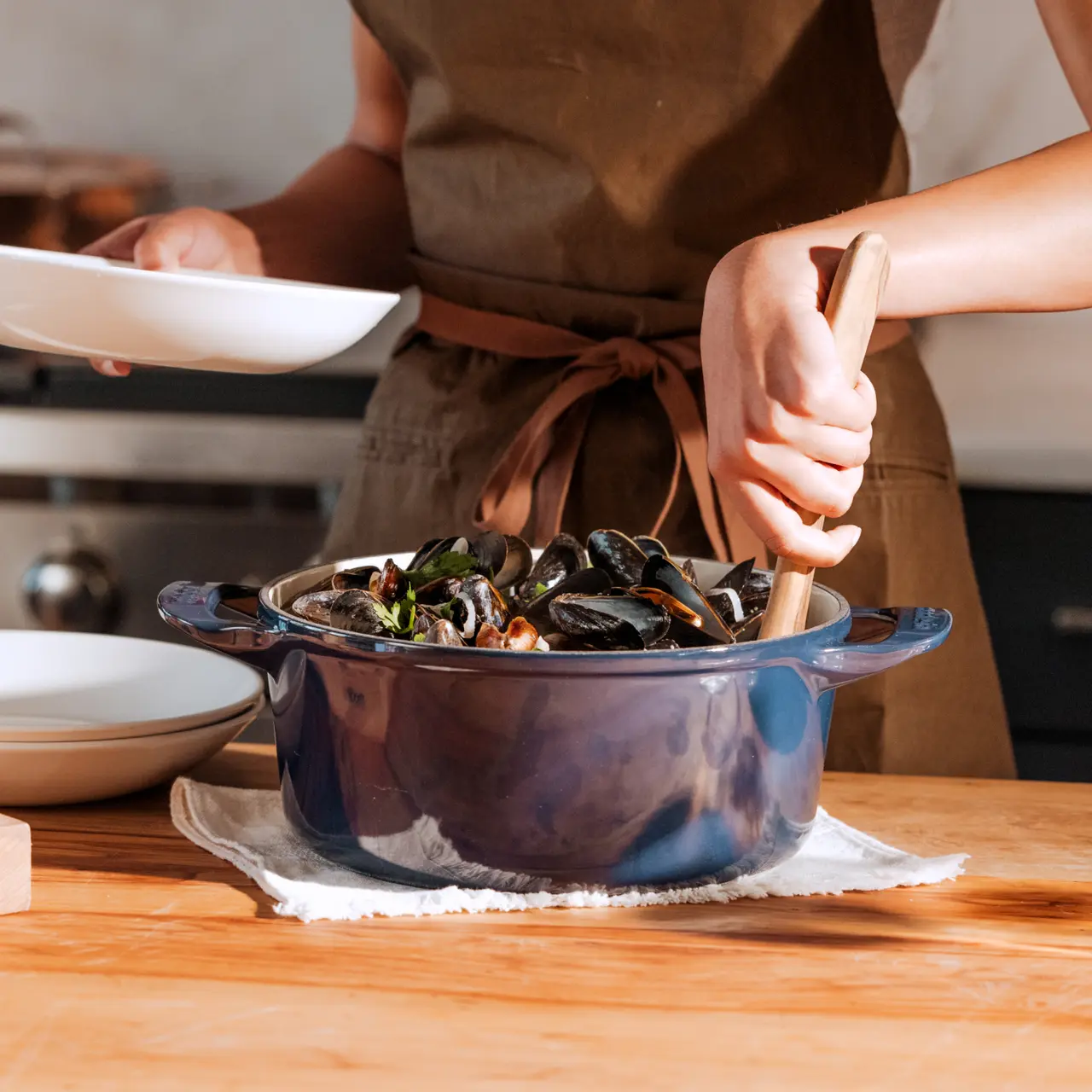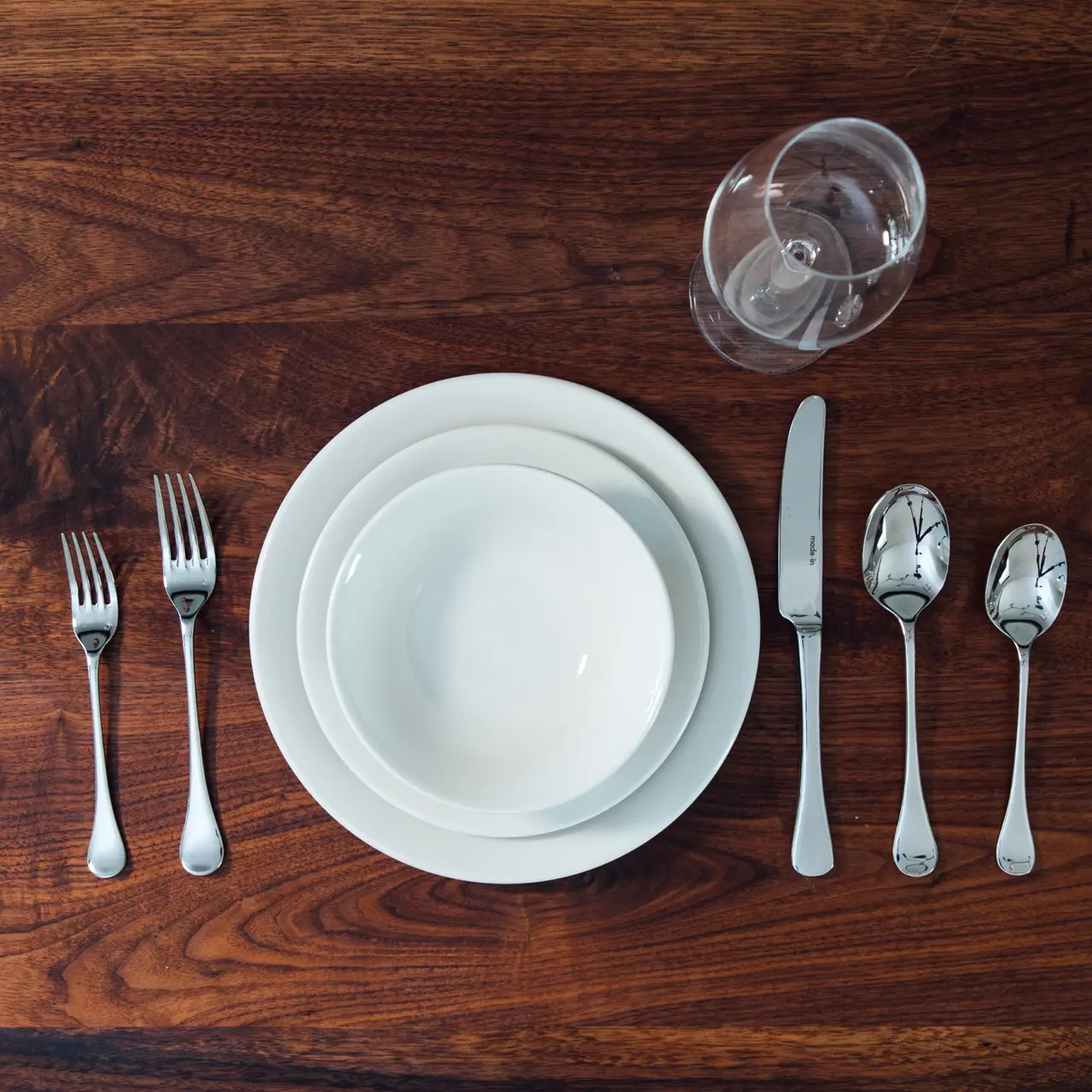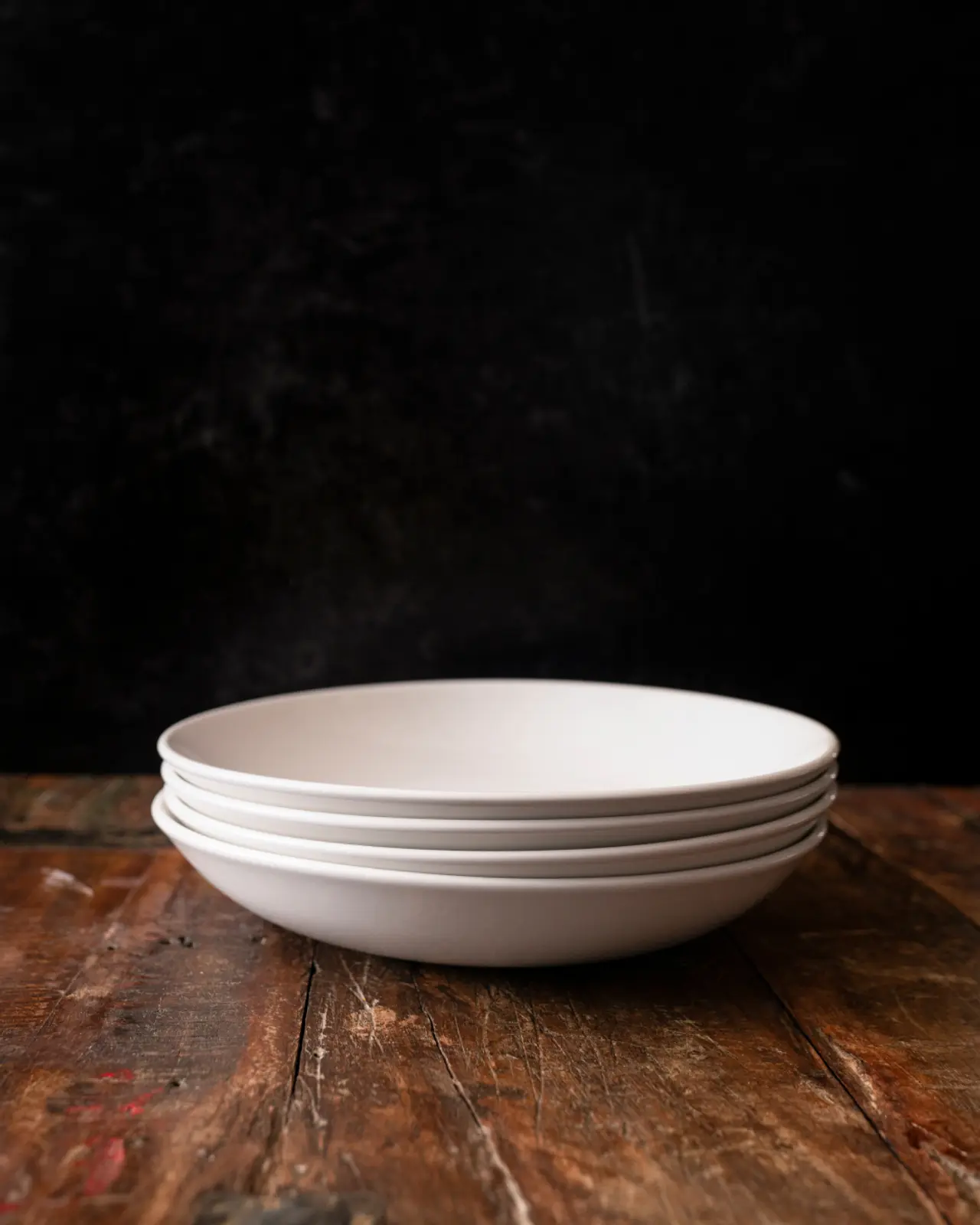While enameled cast iron makes for easier maintenance than its unfinished counterpart, it's equally important to take care to clean it carefully. Our guide covers everything you need to keep your enameled cast iron skillet, saucepan, or Dutch oven looking—and performing at—its absolute best.
How to Clean Enameled Cast Iron
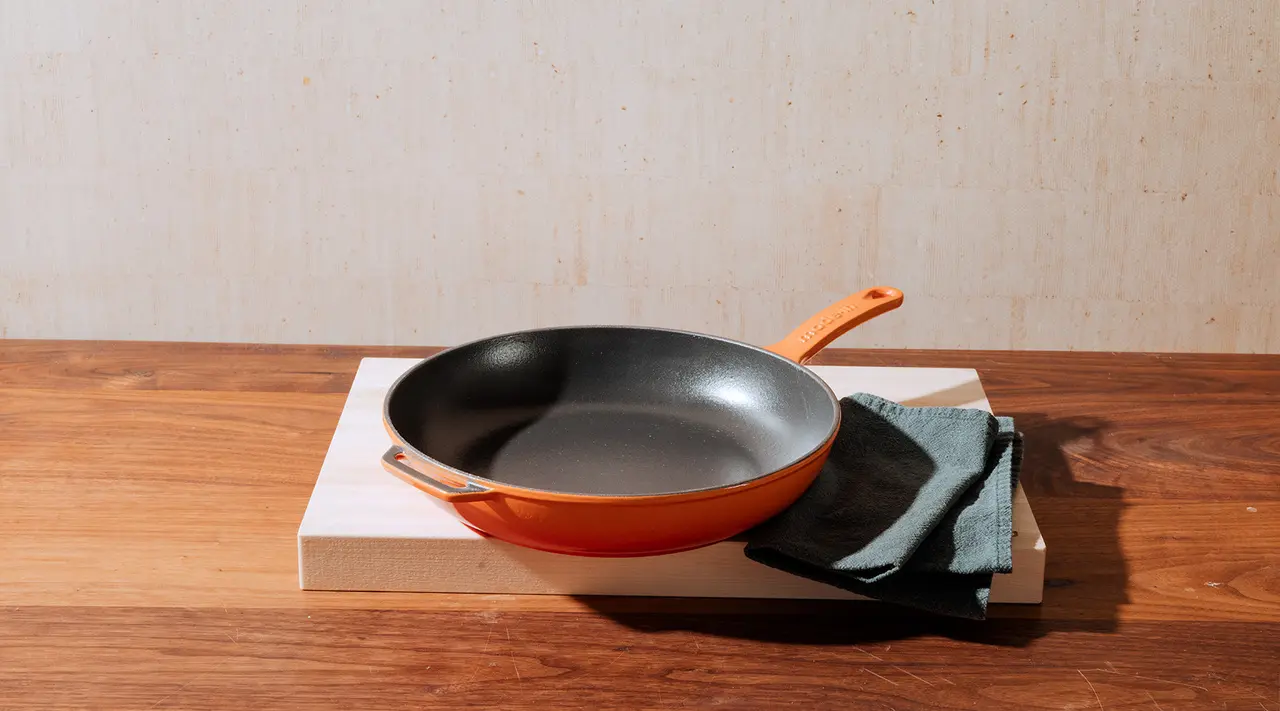
The enameled surface of enameled cast iron prevents rust, allows you to use acidic ingredients without stripping, and makes cleaning a Dutch oven (or skillet) a whole lot simpler than if it were unfinished cast iron. This is the main difference between enameled and unfinished cast iron—whether the surface is enameled or not. While unfinished (or "raw") cast iron is porous and requires seasoning to develop a non stick cooking surface, enameled cast iron has a smooth, finished surface that doesn't require the same level of care as unfinished.
Similar to cleaning non stick cookware, the process for cleaning enameled cast iron cookware depends on how dirty it is. From stuck-on food to scorched enamel, here’s how to tackle each type of mess.
Level One: Dirty Enamel
If you’re using your enameled cast iron skillet, saucepan, or Dutch oven for mainstays like stews, soups, or braises, your pot or pan likely isn’t getting very dirty—at most, you might be left with some stuck-on residue.
To clean, you’ll need to grab some dish soap, a sponge with an abrasive side, and dish soap or a specialized ceramic cleaner (powder or liquid both work here).
Step 1: Cool It Off
Allow your pan to cool thoroughly before cleaning. Just like a stainless or non stick skillet, any sudden temperature change can result in thermal shock, which could damage your cookware.
Step 2: Scrub
Once your pan has cooled, scrub with a soapy sponge and warm water, using the abrasive side to remove any stubborn bits. Make sure to scrub the outside of your pot or pan to prevent the enamel from staining.
Step 3: Soak
If you can still see stuck-on bits of food, leave the pan to soak with warm water and dish soap for a few minutes before scrubbing again. If this still doesn’t work, try sprinkling a small amount of cleaner onto the residue, then rubbing it in with the non-abrasive side of your sponge before rinsing. Dry thoroughly before putting away.
Level Two: Discolored or Stained Enamel
Like any well-loved pot or pan, your enameled cast iron cookware is eventually going to develop some slight discoloration, usually a brownish stain that can range from barely-there to prominent.
While it may look permanent, we promise it’s not, and it’s simple to remove—all you’ll need is a sponge with an abrasive side, liquid or powdered cleaner, and some dish soap.
Step 1: Wash With Soapy Water
Give your pan a thorough scrub with warm, soapy water to try and lift some of the discoloration, then rinse.
Step 2: Scrub Well
Same as when cleaning a Level One mess, you’ll want to sprinkle a small amount of cleaner onto the discolored area, rubbing it in with the non-abrasive side of your sponge before rinsing.
Level 3: Burnt Enamel
If a stain seems permanently baked on on after a Dutch oven deep-fry session, even after soaking with warm water, you may be dealing with polymerized oil—essentially a layer of seasoning that’s molecularly bonded to your pan. This is much harder to remove with just soap and water, and calls for a more intense cleaning method.
Step 1: Simmer With Baking Soda
Fill your pot or pan with enough water to cover all of the burnt residue, then bring to a boil over medium-high heat. Add a couple of tablespoons of baking soda (roughly two tablespoons for every four cups of water) and stir gently with a wooden spoon or other non-abrasive utensil.
Step 2: Scrape and Scrub
Once boiling, gently and repeatedly scrape the burnt parts with your utensil until you’ve gotten all or most of the residue off. If there are any remaining bits, allow your pan to cool before scrubbing once more with soap and water. Repeat as many times as necessary to remove the burnt residue.
Enameled Cast Iron Care Tips

Knowing how to clean your Enameled Cast Iron Cookware is only half the battle. To keep your pot or pan in excellent working condition, keep these tips in mind while using it.
Use Non-Abrasive Utensils
Avoid using sharp metal utensils or steel wool on enameled cast iron, as this will scratch the glaze and damage the smooth surface. Instead, reach for a silicone or wooden utensil to stir, and a standard dish sponge to clean (the abrasive side of a sponge is fine, just be gentle).
Avoid Heating an Empty Pan
As with non stick cookware, don't heat up enameled cast iron cookware without anything in it—this can damage the glaze and cause scorching or burning. Always add water or fat to your pan before heating on the stove or in the oven.
Wash by Hand
Make sure to wash enameled cast iron cookware by hand, as running it through the dishwasher can cause the enamel to wear out prematurely. Scrubbing with a sponge and dish soap should be enough to get rid of most messes—and if not, you’re now equipped with the knowledge to get rid of the rest.
Ready to Shop?
Now that you’re an expert on cleaning and maintaining these workhorse pots and pans, it’s time to get to the fun part—all the incredible recipes you’ll be making in your well-maintained cookware. With hand enameling and French construction, our Enameled Cast Iron Cookware is as beautiful to look at as it is versatile to cook with. Add a piece (or two) to your collection today to see the difference this material can make in your kitchen.
